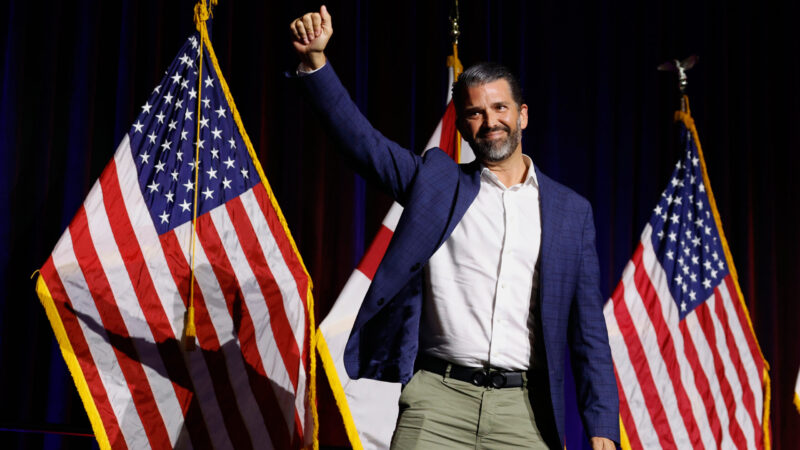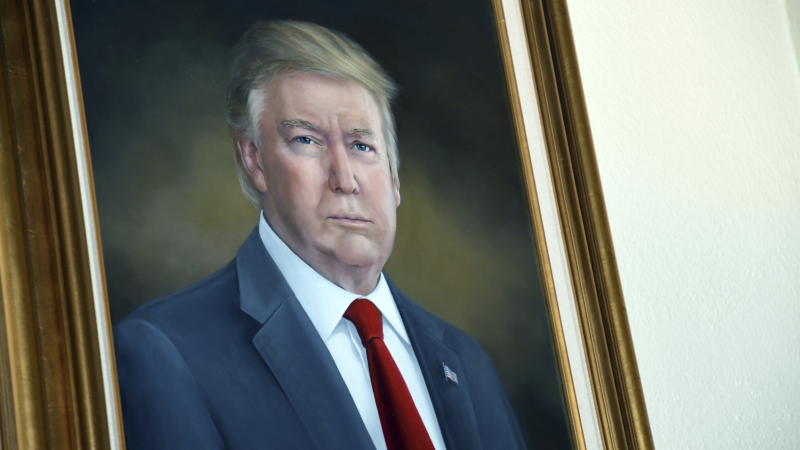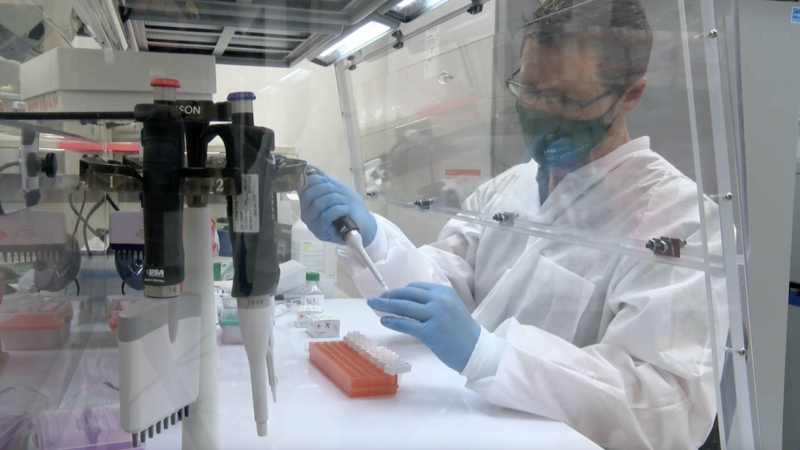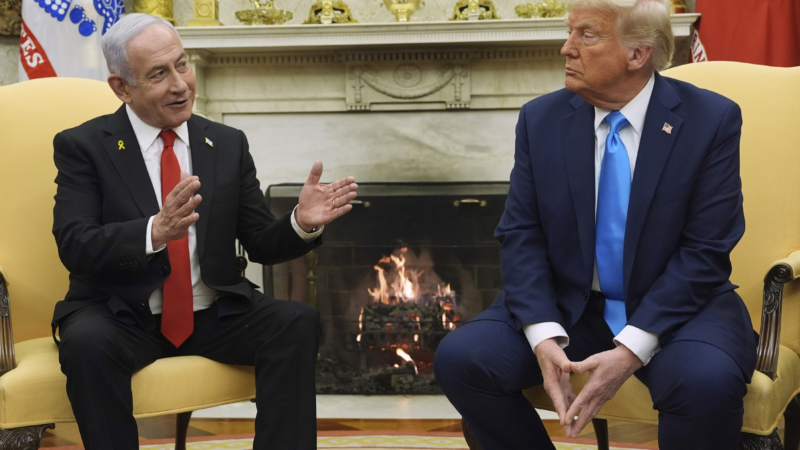National Science Foundation freezes payments in response to Trump’s executive actions
Julia Van Etten suddenly cannot pay her bills this week.
The biologist at Woods Hole Oceanographic Institution won a postdoctoral research grant from the National Science Foundation (NSF) to study how DNA sharing among microbes shapes their evolution. The grant supports her research — and her livelihood.
But the NSF froze payments to all existing grants on Tuesday. This means Van Etten, and the hundreds of other scientists with her type of grant, could not withdraw the money they need for food and rent, or their research.
“Scientists at this career stage are not paid that well, so we all kind of live somewhat paycheck to paycheck,” she says. “I will be unable to pay my bills this month if they don’t resolve this soon.”
NSF’s freeze includes both funding grants that have already been awarded, as well as reviewing new applications for funding future research.
The freeze remains despite the White House rescinding its memo calling for a pause in all federal grant spending on Wednesday after a court order challenged it. The reason NSF has continued with a freeze appears to be Trump’s orders targeting diversity, equity and inclusion efforts and how they conflict with the NSF’s mandate from Congress.
“All NSF grantees must comply with these executive orders by ceasing all non-compliant grant and award activities,” said an NSF statement. “In particular this may include … grant activity that uses or promotes the use of diversity, equity, inclusion and accessibility principles and frameworks.”
This presents a huge challenge to the NSF. The CHIPS and Science Act of 2022 has several provisions tied to NSF that explicitly require it to broaden participation in science, and earlier laws governing the foundation have similar language. That means that in addition to weighing the intellectual merit of proposals, NSF must consider how the research it funds will expand “participation of women and individuals from underrepresented groups” in science — something studies show leads to more productive science.
The Trump administration is now saying NSF can’t do what Congress requires it to do. For now, NSF appears to be complying. Science reported Thursday that the agency is searching through billions of dollars of its already awarded grants looking for topics related to DEIA. Funding likely won’t resume until that review of billions of dollars worth of grants is complete.
“It’s just a massive waste of resources,” says Mary Feeney, a public policy researcher at Arizona State University. “People aren’t getting their work done. They canceled all these scientific panels, stopping the work of agencies right now is going to have real consequences.”
Beyond the freeze, she worries about the broader implications of the Trump administration’s early moves.
“The idea that the President would have some sort of committee or set of people who would make determinations about funding decisions threatens the whole scientific enterprise,” she says. “Broadening participation is ensuring that when you use taxpayer dollars to invest in science, you’re getting the most benefit out for public and social outcomes.”
Funding freeze fallout
Most federal grants, from the NSF or other agencies like the National Institutes of Health or the Environmental Protection Agency, don’t go directly to individual researchers like Van Etten. Instead, they go to the grant recipient’s university or institution, which then disburses the funds.
Universities have been scrambling to understand their legal exposure to the new executive actions, says Feeney. It would be highly unusual for a funding agency like NSF to claw back money from a university that’s already been given, she says. But going forward, “they’re trying to understand ‘what can I pay for and what I can’t.’ “
In the meantime, universities have released a wide range of statements advising researchers on what to do.
Many, including Stanford University and the University of Texas at Austin, are telling their research community to continue as normal, unless they get explicit orders to stop work from a federal agency. A few are taking a more cautious approach, including the University of Chicago, which on Tuesday asked its staff to pause all non-personnel spending on federal grants, including research supplies and travel, while it assesses its legal exposure.
That stance is creating some confusion among staff. Peter Savage is an immunologist at the University of Chicago. His lab maintains hundreds of mice for experiments to help develop cancer therapies, which he still plans to feed for the time being.
But he says, “if there’s a significant stoppage or delay in funding, we’d basically have to euthanize a lot of our mice and contract our colony to the smallest amount possible. That’s the equivalent of a farmer losing a crop for the whole season,” he says, and would take months to re-breed those mice.
All the confusion around the freeze has many scientists worried they may not see grants they’ve already awarded. Carrie McDonough is an environmental chemist at Carnegie Mellon. She got an EPA grant to develop faster ways of creating environmentally-sustainable chemicals. That should be sending funds in March to help support a graduate student, she says. “Now I’m not sure if or when it’s coming.”
Van Etten is concerned about the impact an extended pause could have on her research, and research more broadly. “This isn’t going to stop science, but it is stopping American science,” she says. “My work in genome biology moves at a very quick pace, and if my work is delayed for months, someone in another country is going to publish something very similar.”
In conservative Alabama, Republicans are cheering for Trump – with some quiet concerns and caveats
Alabama Republicans cheered President Donald Trump and his agenda at a GOP party the day he imposed tariffs and sent stock markets tumbling worldwide. But there were signs of a more cautious optimism and some worried whispers over Trump’s sweeping tariffs, the particulars of his deportation policy and the aggressive cuts by his Department of Government Efficiency.
The artist behind ‘the worst’ Trump portrait defends her work
The painting, which was commissioned by Republicans, has hung in Colorado's state Capitol since 2019. Trump follows other U.S. presidents who weren't flattered by their depictions.
Are UAB officials mum about grant cuts because they fear a spiteful president?
Cuts to federal research grants could cost UAB $70 million a year, leading to layoffs and economic impacts beyond the campus. Some faculty and area leaders want UAB to be more vocal against the Trump administration cutbacks.
The (artificial intelligence) therapist can see you now
Many AI products claim to deliver mental health therapy, but with little quality control. But new research suggests with the right training, AI can be effective at helping people.
Netanyahu is set to meet Trump to discuss Israeli hostages in Gaza and U.S. tariffs
Israeli Prime Minister Benjamin Netanyahu will meet with President Trump expecting to discuss tariffs, hostages and war in Gaza and other issues.
A young boy safely returned to his family after getting lost at the NYC Marathon
After Nancy Willis finished the New York City Marathon, she went to greet her family, only to discover that her 8-year-old son was missing. After a frantic search, a woman appeared with the boy.









